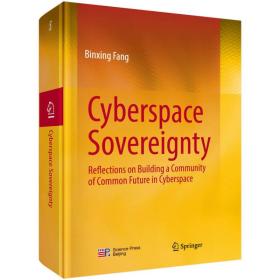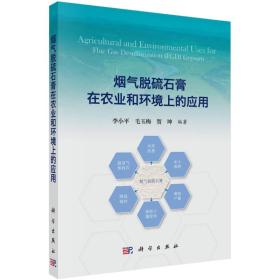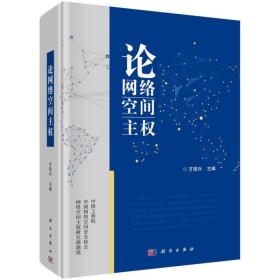
论网络空间主权(英文版)
全新正版
¥ 196 全新
库存5件
北京通州
认证卖家担保交易快速发货售后保障
作者方滨兴 著
出版社科学出版社
出版时间2018-08
版次01
装帧精装
上书时间2024-11-18
- 在售商品 暂无
- 平均发货时间 40小时
- 好评率 暂无
- 最新上架
商品详情
- 品相描述:全新
图书标准信息
- 作者 方滨兴 著
- 出版社 科学出版社
- 出版时间 2018-08
- 版次 01
- ISBN 9787030539069
- 定价 196.00元
- 装帧 精装
- 开本 大16开
- 页数 524页
- 字数 500千字
- 正文语种 简体中文
- 【内容简介】
-
at the end of 2014,preident jinping a the firt tate head voiced ‘repect to cyber overeignty‘. following that,more than 30 reearcher from different unit,inclu fang binng,took the aignment ‘reearch on cyberpace overeignty‘ from the office of the central lea group for cyberpace affair and the chinee academy of engineering in 2015. the reearch i focued on the generation,development,conflict,ecurity,and other iue of cyberpace overeignty. chen zuoning,the vice preident of the chinee academy of engineering,attached great importance to the tudy and gave their advice.
in 1994,china formally got acce to the inter. two year later china inter began to enter a wide popularity tage,and the national tate hightech development n (‘863‘ n) included the inter technology into the reearch guide,in 1998,the minitry of electronic indutry and the minitry of t and telemunication were bined to form the minitry oflnformation indutry,which allowed the inter and telemunication buine to be independent of the government function and be run by enterprie. the minitry oflnformation indutry,unlike the former minitry of electronic indutry and minitry of t and telemunication,no longer undertook the management activitie,but erved a the government to regulate the operation of variou type of work ervice. with the function of the government being clear,the minitry of information indutry began to make more effort in the management of ecurity problem and introduced a erie of management ytem and policie.
in 1996,the inter activit john perry barlow publihed the famou ‘a declaration of the independence of cyberpace‘,claiming that cyberpace belong to the ‘future world‘ in which there i no government,no overeignty,and it i global o pace where it own o contract i forming and people deal with what happened in cyberpace in their own way. a can be een from the declaration,ome people regard cyberpace a a ‘virtual world‘ independent of the phyical world and thu reit governmental management from the phyical world. - 【目录】
-
1 the definitions of fundamental concepts 1
1.1 basic definition of cyber 3
1.2 various (electromagic) information works 4
1.2.1 telemunication works 4
1.2.2 broadcast and television works 7
1.2.3 the intemet 7
1.2.4 mobile inter 8
1.2.5 so works 8
1.2.6 inter of things 9
1.2.7 sensor works 9
1.2.8 industrial control works 9
1.2.9quantum munication works 10
1.3 the concept of space 10
1.4 introduction of the concept of cyberspace 12
1.5 diversified description methods for cyberspace 16
1.5.1 simply defining cyberspace as information and
munication infrastructure 17
1.5.2 defining cyberspace as an information and munication infrastructure and resident data 19
1.5.3 defining cyberspace as a collection of facilities,data and people 21
1.5.4 defining cyberspace as a collection of facilities,data and operations 23
1.5.5 defining cyberspace as a plete set of facilities,data, people and operations 24
1.6 analyses on the four elements of cyberspace 28
1.7 the history of cyberspace 29
1.7.1 the history of radio broadcast 29
1.7.2 history of direct broadcasting satellite 33
1.7.3 history of cable television 36
1.7.4 history of the inter 39
1.7.5 change of focuses during cyberspace development 47
1.8 the reality of cyberspace 48
1.8.1 the authenticity from the perspective of virtual real mapping 48
1.8.2 the authenticity of cyberspace from its representations 48
1.9 the definition of cyberspace 49
1.9.1 the definition from the public point of view 49
1.9.2 the definition from an academic point of view 50
1.9.3 the presentation from the international perspective 51
1.10 the definition of cyberspace security 51
2 understan of the traditional sovereignty concept 53
2.1 the origin of sovereignty 54
2.1.1400 year history of the western sovereignty concept 55
2.1.2 three waves of independence by sovereign nations of the world 56
2.1.3 the intemally relative constitutionality of sovereignty: twar iraq 57
2.1.4 the externally relative constitutionality of sovereignty: switzerland and the tax haven 58
2.2 the connotation of sovereignty 59
2.2.1 the first natural attribute of sovereignty connotation: territory sovereignty 60
2.2.2 the second natural attribute of sovereignty connotation: people sovereignty 60
2.2.3 the third natural attribute of sovereignty connotation: politics sovereignty 61
2.2.4 un evolved sovereignty: sovereignty protection of non self governing territories 62
2.3 extensions of sovereignty 62
2.3.1 the first natural attribute of sovereignty denotation: the right of international self defense 63
2.3.2 the second natural attribute of sovereignty denotation: the right of international independence 64
2.3.3 the third natural attribute of sovereignty denotation: the right of international equality 65
2.4 applications of sovereignty 68
2.4.1 geographic history determines endowments of traditional national sovereignty 68
2.4.2 the world view of ‘super sovereignty‘ in history 71
2.4.3 ‘overall coordination of two great situations‘ reflects constitutionality of sovereignty 74
2.4.4 extensions of state sovereignty into cyberspace 75
3 interpretation of the concept of“cyberspace sovereignty‘ 77
3.1 multiple interpretations about cyberspace sovereignty 77
3.1.1 ‘cyber sovereignty‘: a shortened form of ‘cyberspace sovereignty‘ 78
3.1.2 the united nations perspective 79
3.1.3 geneva declaration of principles 80
3.1.4 perspectives in the hiternational code of conduct for information security 81
3.2 definition of cyberspace sovereignty 82
3.2.1 the basic elements of cyberspace sovereignty 83
3.2.2 basic rights of cyberspace sovereignty 84
3.2.3 basic principles of cyberspace sovereignty 84
3.2.4 definition of cyberspace sovereignty 85
3.3 the evolution of sovereignty in a variety of cyberspace 86
3.3.1 the type of works over which cyberspace sovereignty naturally ests 87
3.3.2 the type of works over which cyberspace sovereignty is not challenged 88
3.3.3 the type of works over which cyberspace sovereignty has been widely acknowledged by the international munity 90
3.3.4 the type of works over which cyberspace sovereignty is a controversial issue 91
4 necessities for advocating cyberspace sovereignty 103
4.1 conflicts caused by absence of cyberspace sovereignty 104
4.1.1 jurisdiction of domain name and other inter resources 105
4.1.2 the ownership of data rights 107
4.1.3 problems brought by big data 108
4.1.4 problems brought by dififerent judging principles of legality 109
4.1.5 problems in the tracing of stepping attacks 112
4.1.6 trans boundary issues of phishing websites 113
4.2 evolution of inter into benefit space of countries 114
4.2.1 sovereignty interest at political level 114
……
点击展开
点击收起
相关推荐
— 没有更多了 —




















以下为对购买帮助不大的评价